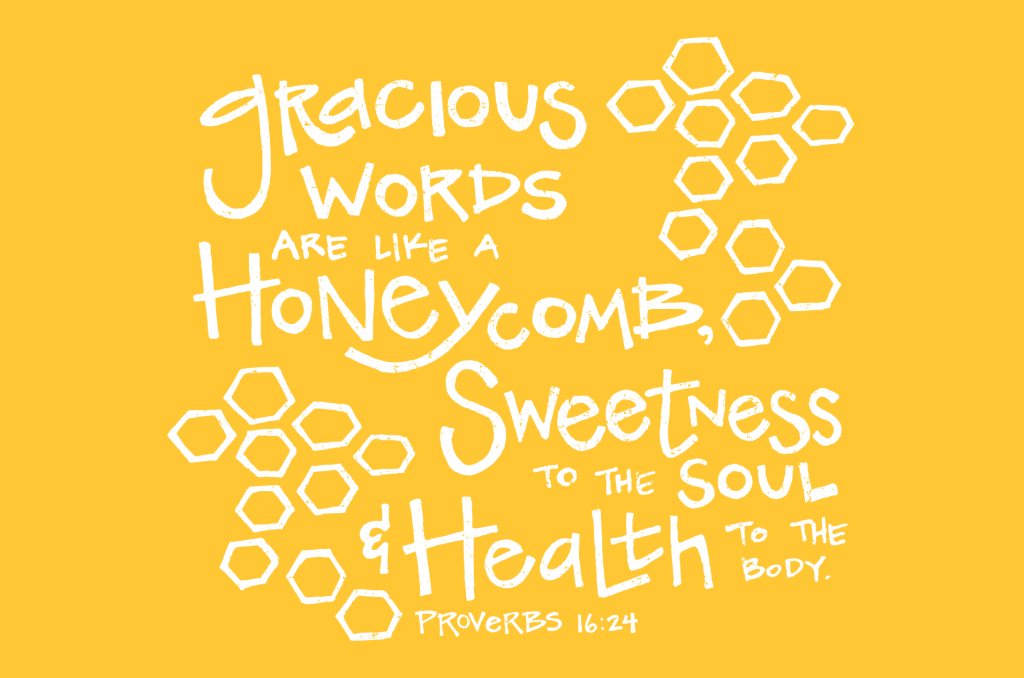When is the last time you blew up at someone? Really, truly went off on them? Many of us who are single have a hard time answering that question. And if we can answer it, the victim was usually someone close to us like a family member.

This might be an overgeneralization, but we’d venture to guess that most of us don’t struggle with knock-down, drag-out fights in our solo living quarters. For some of us, the interpersonal conflict we would experience in marriage and family is minimized by our singleness. If we have roommates, there’s possibly a little more. If we live close to our family members, our odds for regular blow-ups might be a little higher. If we grew up in a family where people yelled all the time, the chances are even greater.
For a large portion of us, though, our struggle is in the day-to-day usage of our words. Choosing them carefully in situations when our friend says something that rubs us the wrong way or when a co-worker isn’t pleasant to work with or when our roommate is inconsiderate or when yet another person asks us why we’re not married yet.
Gracious words are like a honeycomb, sweetness to the soul and health to the body. [Proverbs 16:24]
In biblical times, honey was both medicine and a luxury. If we use our words to tear down, they are nothing like honey, but if we choose our words carefully, they can be both good medicine and an undeserved luxury for their hearers. Some translations call our words “gracious,” others call them “pleasant.” Either way, our wise and kind words can be life giving.
 In our culture, people often wear “Straight Shooter” as a badge of honor. (And it has nothing to do with guns.) Is it good to be direct and honest with others? Absolutely. Hurt and misunderstanding escalate when we pretend it doesn’t exist. Are there times when we need to sit down and have a hard conversation about an area of conflict? Absolutely. But our words should be gracious—even in our directness, even in our conflict.
In our culture, people often wear “Straight Shooter” as a badge of honor. (And it has nothing to do with guns.) Is it good to be direct and honest with others? Absolutely. Hurt and misunderstanding escalate when we pretend it doesn’t exist. Are there times when we need to sit down and have a hard conversation about an area of conflict? Absolutely. But our words should be gracious—even in our directness, even in our conflict.
Here’s what’s even more interesting: The words we speak aren’t just healing to the recipient, they’re healing to us, the speaker, as well.
If we’re upset about something, sweeping it under the rug rarely helps the de-escalate the situation or our emotions. Gracious words won’t just roll off our tongue when we’re hurting, either. However, just because we’re hurting doesn’t give us a pass on using them. Choosing to deal with the matter at hand under the leadership of the Holy Spirit is a powerful thing. It brings healing to the situation at hand, as well as to us for speaking with grace instead of harshness.
What we say, the tone we use, the time in which we say it, whether or not to obey the Spirit’s leading—all are a choice we make when we speak.
:: FREE Scripture Printables ::
 In case you need to be reminded of the goodness of using gracious words over harsh ones, we’re giving away FREE hand-lettered printables of Proverbs 16:24. The packet includes the verse, drawn by Libby Gifford, in a variety of color options. All you have to do is print it out. Libby created it to fit in an 8×10 frame, too, if you want to display it in your house.
In case you need to be reminded of the goodness of using gracious words over harsh ones, we’re giving away FREE hand-lettered printables of Proverbs 16:24. The packet includes the verse, drawn by Libby Gifford, in a variety of color options. All you have to do is print it out. Libby created it to fit in an 8×10 frame, too, if you want to display it in your house.
The download also includes a FREE graphic for your phone in case you need an extra-close reminder. (No judgment here.)